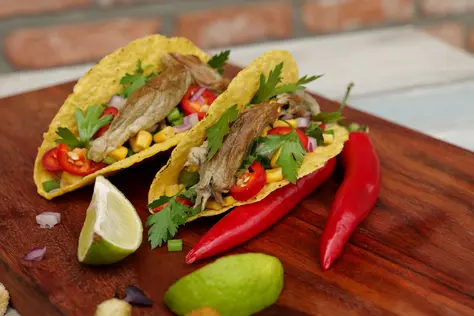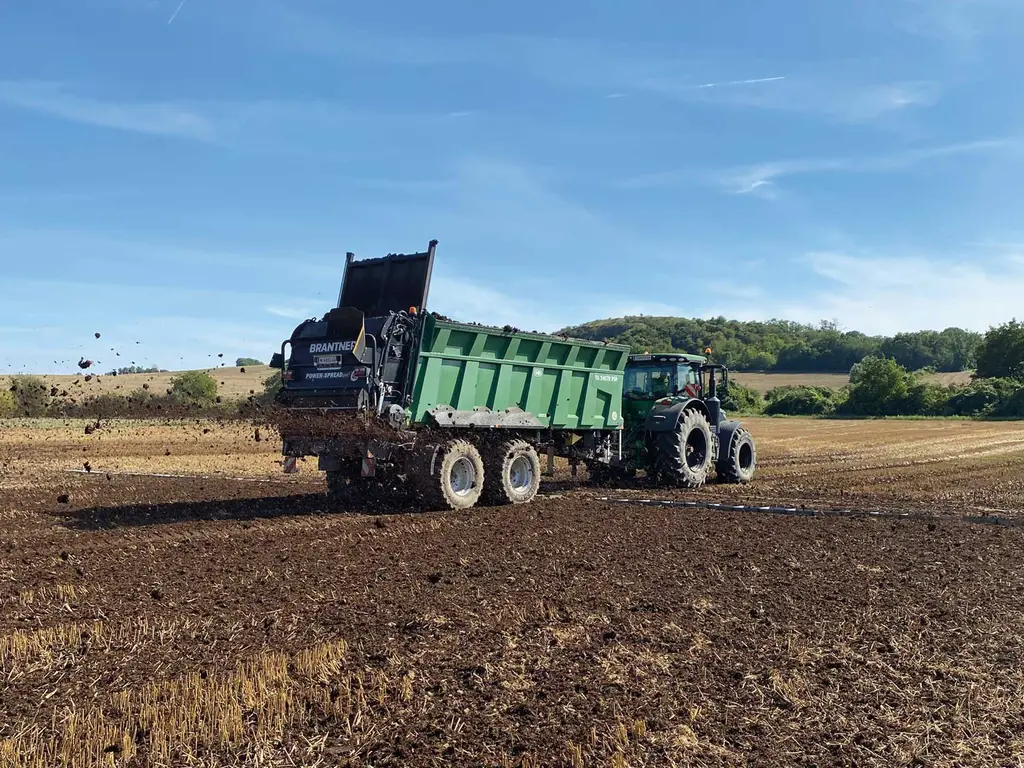Doreen Jean Nsasiirwe is a certified Trainer of Trainers (ToT) in beekeeping and holds credentials in Best Manufacturing Practices and Standards from the Uganda National Bureau of Standards with nearly two decades of experience in agriculture, specializing in apiculture, rural development, and sustainable food systems. She is the Founder and Managing Director of Westlink Delicacy Api-Group Limited a company at the forefront of producing high-quality, nutrient-dense, sustainable natural health products such as honey, bee venom, bee propolis, chia seeds, and macadamia nuts. Through her enterprise, Doreen champions environmental conservation and public health by providing sustainable alternatives to synthetic products.
Doreen’s leadership extends across national and continental platforms. She serves as the Vice Chairperson of the Board of Directors for the Uganda National Apiculture Development Organization and is a former Board Member of the Africa Agribusiness Academy. As the Chairperson and founding member of Kaswa Women Chia Seeds Growers, empowering rural women to engage in profitable and sustainable farming.
Doreen is a mentor with the Academy of Women Entrepreneurs, African Women Agribusiness Network, and the Stanford Seed Entrepreneurship Program, where she supports emerging entrepreneurs, especially women, in scaling their ventures. Her dedication to women's empowerment, gender equality, and child protection has made her a sought-after speaker and panelist, including at the UN Global Compact SDG Activation Day during the 11th Africa Regional Forum on Sustainable Development (ARFSD-11).
Her excellence and impact have earned her numerous accolades, including the Women Award South 2022, Outstanding Contribution to Green Finance (2023), and Women in Agriculture Award 2024. She has also been recognized for her innovation and visibility at major agricultural events, winning the Best National Honey Week Exhibitor for three consecutive years, Best Branding Award at the 2024 Kampala Impact Day, and Best Youth Exhibitor at the 2025 Harvest Money Expo. Doreen’s leadership is grounded in values that prioritize people, planet, profit, and partnerships. She is deeply committed to transforming communities through sustainable agriculture, advocacy, mentorship, and ethical business practices. Her work continues to inspire a new generation of agribusiness professionals across Africa and beyond.
What challenges have you faced as a woman entrepreneur in agribusiness, and how did you overcome them?
My entrepreneurial journey began by reflecting on a childhood incident that left me severely burned. My mother used honey to treat my wounds, and its natural healing power left a lasting impact on me. That experience sparked a deep appreciation for honey, not only as food, but also as a remedy and symbol of restoration. Years later, as a mother and health advocate, I turned that passion into purpose, for profit by founding Westlink Delicacy Api-Group Limited, a company committed to delivering affordable, nutrient-dense, sustainable natural health products that positively impact the community economically, socially, and environmentally. I have faced several challenges along the way, such as supermarkets closing down without payment. I turned adversity into opportunity by launching our retail company shops, strengthening our brand, and market presence.
How has your work impacted rural communities, especially women and youth?
Westlink Delicacy Api Group Limited has made a transformative impact on rural communities by creating inclusive and sustainable opportunities in agribusiness. Through commitment to health, economic empowerment, ecological conservation, and social inclusion, we have positively impacted many, especially women and youth.
- By providing high-quality, natural products like honey, bee venom, and chia seeds, we have improved access to nutritious alternatives, contributing to healthier communities.
- Women and youth actively participate across the value chain, from beekeeping and chia farming to product processing and retail. This inclusive employment model has provided stable incomes, reduced economic disparities, and fostered financial independence.
- We have trained over 600 youth in apiculture, entrepreneurship, and sustainable agriculture, equipping them with practical skills to start their ventures. Our internship and mentorship programs provide hands-on experience and career readiness in agribusiness.
- Westlink Delicacy’s support for beekeeping and cultivation of chia, hibiscus, shea, and macadamia promotes ecological balance. Apiculture supports pollination for 70% of Uganda’s crops, enhancing biodiversity and agricultural yields.
- Women make up 70% of our workforce, with 75% being youth, and they hold the majority of board positions (4 out of 7 members). We ensure equal pay, offer flexible work options, and support career advancement through targeted training and leadership development programs.
- Through collaborations with organizations like AWEC, AWE, AWAN, FSME, TUNADO, and Einstein Rising, Westlink Delicacy mentors women entrepreneurs, facilitates access to markets, and offers networking and growth opportunities.
- We source some raw materials directly from women-led enterprises, creating additional revenue streams and strengthening local supply chains. Strategic partnerships with companies like Sanyu Foods and Raw & Organic amplify the economic voice of rural women.
- Our grassroots training and mobilization have increased confidence, self-esteem, and decision-making power among indigenous people, women, and youth, encouraging active participation in community development.
How would you describe the current state of agriculture in Uganda?
The current state of agriculture in Uganda reflects a sector with immense potential but also persistent structural challenges. Agriculture remains the backbone of Uganda’s economy, employing over 70% of the population, most of whom are smallholder farmers (https://www.fao.org/family-farming/detail/en/c/1629961/). While the sector contributes significantly to food security and livelihoods, its growth and productivity are hampered by a range of interconnected issues.
Predominantly small-scale: Most farming is subsistence-based, with low levels of mechanization and reliance on traditional practices.
Youth involvement is rising, especially in agribusiness, supported by entrepreneurial initiatives, but employment opportunities and profitability remain limited.
Diverse agro-ecological zones allow for a variety of crops (macadamia, coffee, maize, bananas, chia seeds, beans, etc.) and livestock, yet productivity is below potential.
Climate change impacts, such as erratic rainfall and prolonged droughts, are increasingly affecting crop yields and livestock survival.
Growth in agribusiness startups and export-oriented farming is promising, but not yet widespread or fully inclusive of rural smallholders.
What are the most pressing challenges farmers face today?
1. Overuse and Misuse of Agrochemicals
Many farmers rely on pesticides, herbicides, and synthetic fertilizers, often without proper training or regulation.
Health risks for farmers and consumers are rising due to poor handling and lack of protective equipment.
Soil degradation and biodiversity loss are growing concerns.
There is limited access to organic or sustainable alternatives, and awareness is still low.
Loss of export market to the EU.
2. Limited Access to Markets
Many smallholder farmers struggle to find reliable markets for their produce.
Post-harvest losses are high due to poor storage, handling, and transportation infrastructure.
Farmers often lack market information and bargaining power, resulting in exploitation by middlemen.
Limited capacity to meet quality and standards required for formal or export markets.
3. Climate Variability and Environmental Stress
Increasing frequency of droughts, floods, and pests (like locusts) is threatening productivity.
Few farmers have access to climate-resilient seeds, irrigation, or early warning systems.
4. Poor Access to Agricultural Finance
Most smallholders lack collateral and credit history, limiting access to loans or insurance.
Microfinance and agricultural credit are often expensive or unavailable, especially for women and youth.
5. Limited Extension Services and Training
Farmers often lack up-to-date knowledge on modern farming methods, pest control, agribusiness development, and value addition.
Extension services are underfunded and stretched too thin across vast rural populations.
6. Land Tenure Insecurity
Many farmers do not have legal ownership or clear rights to the land they cultivate.
This limits their ability to invest in long-term improvements like irrigation, soil conservation, or agroforestry.
7. Gender Inequality
Women, who make up the majority of Uganda’s agricultural workforce, often have less access to land, credit, training, and inputs.
Their role in decision-making and value addition remains limited in many communities.
Doreen, what makes your company unique?
Our company stands out as a sustainability actor through its social impact footprint, and uncompromising quality standards. From the unpolluted Kisoro-Virunga region, renowned for its biodiversity, we source award-winning, UNBS-certified Kisoro Pure Honey, a crystalline, organic treasure manufactured by nature itself. Unlike most conventional products, our honey embodies purity, free from synthetic additives, ensuring health-conscious consumers receive only the best.
Our expansive product range, including bee propolis, bee venom, chia seeds, macadamia nuts, hibiscus tea, and shea butter, reflects a commitment to wellness through nature. This dedication extends to eco-friendly agricultural practices like regenerative farming (chia seeds growing), tree planting, and conservation efforts that enhance biodiversity and restore the environment. We 100% recycle waste on our farms where nutrients and resources are recovered by our resource loop model. This enables us contribute to SDG 12.
By collaborating with over 430 farmers, we empower rural communities through sustainable income opportunities, fostering economic growth and poverty alleviation. Our innovative distribution channels, like company sales stores offer a fresh concept, natural health solutions in convenient, everyday locations. Distributorship through supermarket partnerships to online platforms ensures accessibility while introducing natural health solutions into urban spaces.
At its core, our business aligns with global efforts for a better future, directly supporting key UN Sustainable Development Goals, from No Poverty and Zero Hunger to Gender Equality and Climate Action. In a competitive landscape where quality and ethical sourcing vary widely, our unwavering commitment to authentic, natural products with no side effects makes us the ultimate choice for health-conscious consumers.
More information about Doreen and her activities:
www.kcca.go.ug/kabd/listings/africa-agribusiness-academy-aaa/
https://ug.linkedin.com/in/doreen-jean-nsasiirwe-7b213b237
https://events.unglobalcompact.org/forwardfasternowafrica2025/home
https://womeninagmag.com/2022/03/24/doreen-nsasiirwe-wins-womed-award-south/
Women in Ag Awards 2024 – Women in Ag
https://www.instagram.com/p/CbCeoYxN7Cj/
https://pctechmag.com/2024/12/entrepreneurs-pitching-at-the-8th-annual-kampala-impact-day/
More information about Uganda and its agriculture:
https://www.fao.org/family-farming/detail/en/c/1629961/
https://www.independent.co.ug/agro-chemicals-killing-ugandans/






























